
The first BMC Members Open Forum Webinar took place yesterday evening (13 December). Members submitted questions ahead of the webinar, some of which were answered by BMC President Andy Syme, Chair of the Board, Roger Murray and Nominated Director Martyn Hurn. The Chair described a "systemic failure" regarding a recently reported ~£200K UK Sport budgeting error, and an anticipated £300-350K loss in 2023, but maintained that the organisation is "not going bankrupt", while outlining a planned leadership restructure and more conservative membership targets and budgets in 2024.
The webinar was largely scripted in response to submitted questions and 15 minutes was scheduled for additional questions. Around 100 members had signed up for the call, Andy Syme said, but participants were muted, not visible on-screen and any questions submitted via chat were not visible to others. Members submitted around 100 questions beforehand and not all were answered in the meeting.
Successes and New Access Initiatives
President Andy Syme opened with a list of recent successes, including Toby Roberts' qualification for the Paris 2024 Olympic Games, the GB Ice Climbing Team's success in the European Cup and the formation of a Skimo steering group ahead of the Milano Cortina 2028 Winter Olympic Games.
Syme also provided updates on a new BMC winter monitoring station on Clogwyn Y Garnedd, its involvement in a UK Sport sustainability programme targeting net zero by 2040, and its support of two new initiatives: Outdoor Her, an online resource for women on managing menstruation and menopause outdoors in collaboration with Mountain Training, and the Outdoors for All manifesto, a coalition working to open up more of the countryside to responsible public access.
BMC Insurance changes
Syme outlined changes to the structure of BMC's travel insurance. Following a compliance review to the BMC travel insurance structure by previous underwriters, the BMC were required to make changes to administrative structure. This resulted in 5 weeks over summer where a limited complementary product was on offer. BMC insurance provision reopened on 4 August, but a further review of BMC insurance provision was deemed necessary.
On 1 December, the BMC transitioned to a new underwriter, Endurance Worldwide, who are working alongside the BMC's master policyholder.
CEO Recruitment
Roger Murray updated members on the ongoing CEO recruitment. The process involved actively distributing the job advert to a variety of recruitment spheres, ranging from the mountaineering community and clubs, to platforms focused on leadership in sporting and charitable organisations. 42 applications were received and two candidates have been shortlisted for the role. The final selection is underway and is expected to be announced next week.
"We have two absolutely fantastic candidates," Murray said. "They are totally and utterly different and we are in the last stages of making a decision around whom to approach, but either of them could do the job and do it really well. But they would do it in a completely an utterly different way."
A reorganisation of the BMC's leadership structure is also planned for early 2024 once the new CEO has settled into the role, focused on "staffing and leadership solutions."
Membership targets
Andy Syme addressed "overambitious" membership targets for 2023 and shared the latest figures.
The target of 91K members by the end of 2023 was part of a longer-term goal of 100K engaged members, with planned course corrections if targets were not being met.
"By the end of quarter one, it was evident that the growth was over ambitious and the course corrections were put in place," Syme explained. These primarily addressed our base costs and were about trying to cut our cloth, according to our income."
As of 1 December, membership stood at 82,314 members – an increase of +815 on December 2022. The projected end of year figure is 83,500 members, which is within 1,500 members of the largest-ever BMC membership in 2019 before COVID.
Syme claimed that many outdoor traders and similar organisations have experienced no growth in 2023, and that retaining and growing membership when others are losing members is "not where we want to be, but still not a bad achievement."
"Membership growth is key, but it's not the only part of how we increase both income and representation and we're still focusing on delivery of services and products to support the community and developing our membership offer including the use of the academy clubs, as well as new membership offers to individuals," he added.
A new website is planned for 2024, which is expected to help attract new members alongside work on an indoor club project and a membership restructure.
Budgeting in 2024 will also be more conservative. "We're looking at 1.5% volume growth, which is about on target with how we grow historically over time," Syme said.
Financial overview
Roger Murray gave a detailed breakdown of the investigation into a recently reported budgeting error that overstated UK Sport funding to GB Climbing by ~£200K. The error led to a BMC overspend of ~£150k within the GB Climbing department. Murray outlined the complexity of UK Sport's funding system, which backs elite sporting performance. This differs from Sport England funding, which supports community engagement and participation in sport.
In October 2020, the BMC board approved a UK Sport bid to support an elite climbing programme working towards Olympic Games. UK Sport funding consists of seven grants, each a sub-grant with constrained use; it can't be transferred and has restrictions on its use.
"UK Sport now admit that the contract is not crystal clear about how the system works," Murray said.
Between Q1 of 2021 and Q3 of 2023, "none of the BMC's finance team got to grips with how the contracts were expected to work," Murray reported. The contract was not clear and no key individuals or committees realised how the grant was supposed to function.
"Let's be clear, it's a systemic failure — it's not one person, it's a systemic failure inside the BMC," he said.
The complication was compounded by updating the BMC's accounting system, Murray claimed, which made reconciling accounts more challenging during an intensive investigation by both the Finance and Audits Committee and UK Sport. This change, however, was described a "long overdue improvement" which will benefit the BMC in the long term.
"That reconciliation is something that we needed to do internally absolutely for the BMC," Murray said. "We've also needed to do it externally and to all intents and purposes we've been put through an audit by UK Sport, and we have come through that audit and we are in agreement."
"We have clarity of grant structure and expenditure against each item. We are now in a place where we understand how this functions."
Murray also mentioned the need for additional senior finance staff. The previous CFO resigned this summer before the error was discovered, but she had emphasised the need for an extra member to provide the financial controller with extra support.
2023/2024 Budget
The finance team anticipate a £300-350K loss this year, Murray reported [this is an increase on the £250-300k loss cited in the November BMC update published on 23/11 three weeks ago]. This loss is due to:
- the aforementioned travel insurance changes
- the UK Sport error
- a planned £70K deficit
The current focus is on approving a Q1 2024 budget, which should be in place by a board meeting on 8 February.
"I might add, there's probably been more oversight and more of what you might call formal approval of financial performance in the past few months than the BMC has seen for a very long time," Murray concluded.
GB Climbing
Many questions concerned GB Climbing and its handling of issues since the publication of an open letter signed by 77 athletes, parents and coaches describing a 'loss of confidence' in the organisation's leadership due to 'continued failures to meet its obligations' in September.
Martyn Hurn updated members on the status of feedback from 'listening sessions' held with stakeholders to address their concerns, which has been delayed due to absence. Feedback will be provided to attendees as soon as possible, he said. In a later comment, Roger Murray added: "The consistency that came through was huge. It didn't matter whether you were an athlete or coach, staff member etc. So there's a huge amount of consistency."
A consultant has also been employed to provide external advice for the department and her report is pending. Hurn defended criticism of GB Climbing's response so far:
"There's been considerable feedback from both the listening sessions, individual emails, and of course the letter of no confidence," Hurn said. "Contrary to some views that are out there, we have not been idle over the last few months, we've been working really hard to look at all the issues that have been raised."
The CCPG is also working on how to "improve the athlete voice" in conjunction with the current athlete representative on the CCPG.
Hurn explained that the athlete talent pathway is evolving and that publication of a handbook outlining the pathway is anticipated in 2024. Regional talent networks are also being piloted next year to minimise school holiday differences.
Concerning reports of issues such as growth plate injuries, RED-S and anorexia, Hurn reported that GB Climbing received an offer of help from a medical professional, but since they were a parent of an active climber, this was considered a conflict of interest. This situation has caused issues in the past, Hurn said. Instead, an athlete health policy is being developed with medical experts and the requirement for a BMC medical officer and athlete health lead is being considered.
A selection event in which multiple young climbers were said to have incurred growth plate injuries was investigated, but it was found that only one parent had reported an injury and a physio "did not report more occurring at that event," Hurn said. He urged stakeholders to report issues to GB Climbing should they arise in future.
A number of questions had asked if GB Climbing were acting responsibly in selection events, by requiring young climbers to operate on such hard routes.
"The grade and style of the boulders we set are in line with the standards that the climbers will have to perform to when they enter international competitions," Hurn said. "If they're not up to that standard, then it's better in our opinion, that they fell on home soil where they have the support of family, friends and coaches. not all of whom would be able to travel to the events."
Addressing concerns raised in the open letter about limited athlete quotas and the resulting lack of competition opportunities, Hurn responded:
"We need the right athlete in the right environment and getting smarter and selecting the right athletes and supporting them with the right environment and experiences to bridge the gap is what will increase the probability of achieving greater success rather than volume of athletes that dilutes the experience of all the athletes."
Hurn said that they will consider the suggestion of support for athletes who drop off the talent pathway and acknowledged that involvement in GB Climbing activities had "affected the mental health of athletes".
"All [UK Sport] funded named athletes undertake screening including mental health support, but this support does not extend to non funded athletes at the moment," he said. "When we have an athlete health lead, we may then have the capacity to undertake some sort of review. This needs to be well thought through and managed well."
New selection documents and policies for 2024 have been published on the GB Climbing website.
Why should the BMC support competitions?
Andy Syme raised the concerns of some members about the BMC's financial contributions to GB Climbing and competitions.
"Not only do we have to be part of this developing community, but fundamentally we are mandated to do so," he said. "Indoor climbing is part of the climbing community and representing and supporting them are the objectives of the BMC articles. They are fundamentally part of our community, and we need to support them. We are the national governing body and we will run and promote competitions."
Syme added that money for elite performance from UK Sport opens up funding from Sport England for community-based outdoor activities and initiatives and highlighted the potential of competition climbing in attracting sponsorship income:
"People see competition climbing as one of the really, really sexy sports that they want to be part of," he said. "So if we get this right then we should be getting the sponsor and partner income coming with it and turn it into a revenue stream. I fully accept we can't sit there and go yep, we've got £6 million from Pepsi because we support competition climbing. We won't get there next year either but long term, everyone - marketing etc. - will say that there are real gateways for opportunity for the BMC in indoor climbing."
Governance structure
Andy Syme was asked about his perspective on the operational involvement of directors.
"It's absolutely brutal and killing, it's far more than anyone signed up to or wanting to do and it's taking up an awful lot of people's lives," he said. "We desperately want to move away from any sort of operational involvement."
"We know that where we are is not good governance and we know too that our funding organisations like UK Sport and Sport England also know it's not good governance. So, one way or another, we will be stepping back to a much more reasonable place as fast as we possibly can."
Murray stated the need for the incoming CEO to assist in improving the governance and structure of the organisation.
"The faster we can bring in a highly competent chief executive to build back a very capable senior leadership — which is not to take away from the senior management team who are doing a fantastic job — the better," he said.
State of the BMC
Syme concluded by re-addressing financial concerns raised by members.
'The BMC is not going bankrupt, we have got reserves etc. — clearly we're in a challenging position because we are coming up close to the edge of those reserves, but we're not going bankrupt. It's not that things are falling apart," he said.
"We will not be hitting the £500K reserve limit," Syme emphasised.
The next BMC Members Open Forum Webinar will take place on 13 March.



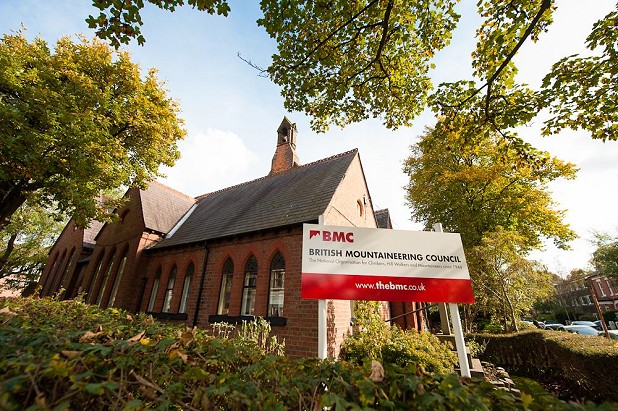







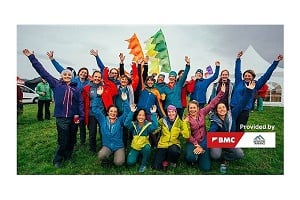
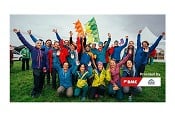
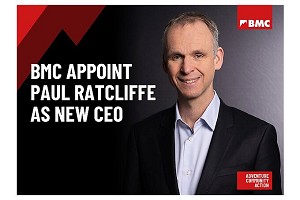
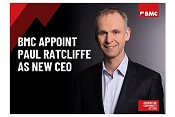
Comments
The most frustrating thing to keep reading is these responses from the BMC that completely misunderstand the “lack of competition access” point. Lots of people were left out of teams last year who were very capable of competing strongly at international level and gaining valuable experience. Also, those that did go typically went to fewer events than their international peers and couldn’t (for example) compete for the overall European title because they simply didn’t attend the required events. Absolutely nobody has ever suggested sending athletes who aren’t ready to compete at that level, but GB/BMC seem (to me at least) to keep reframing this point as if that’s what people are demanding. Eventually it ends up being quite insulting to hear the same response over and over again, a response constructed by misunderstanding the complaint in the first place. Nobody is against performance standards, but people are against silly implementations thereof, and turning down the opportunities for selected athletes to compete for things like European titles.